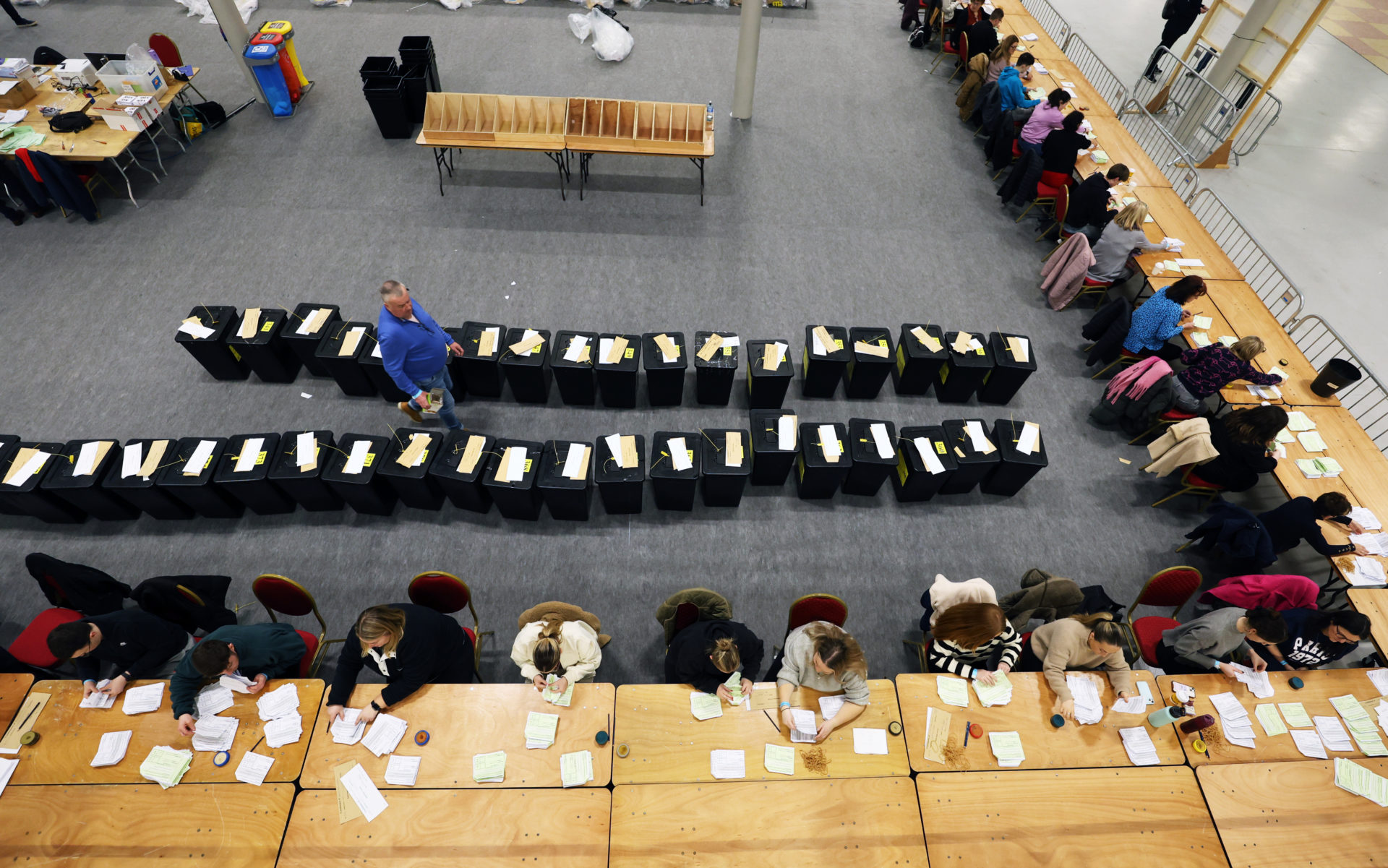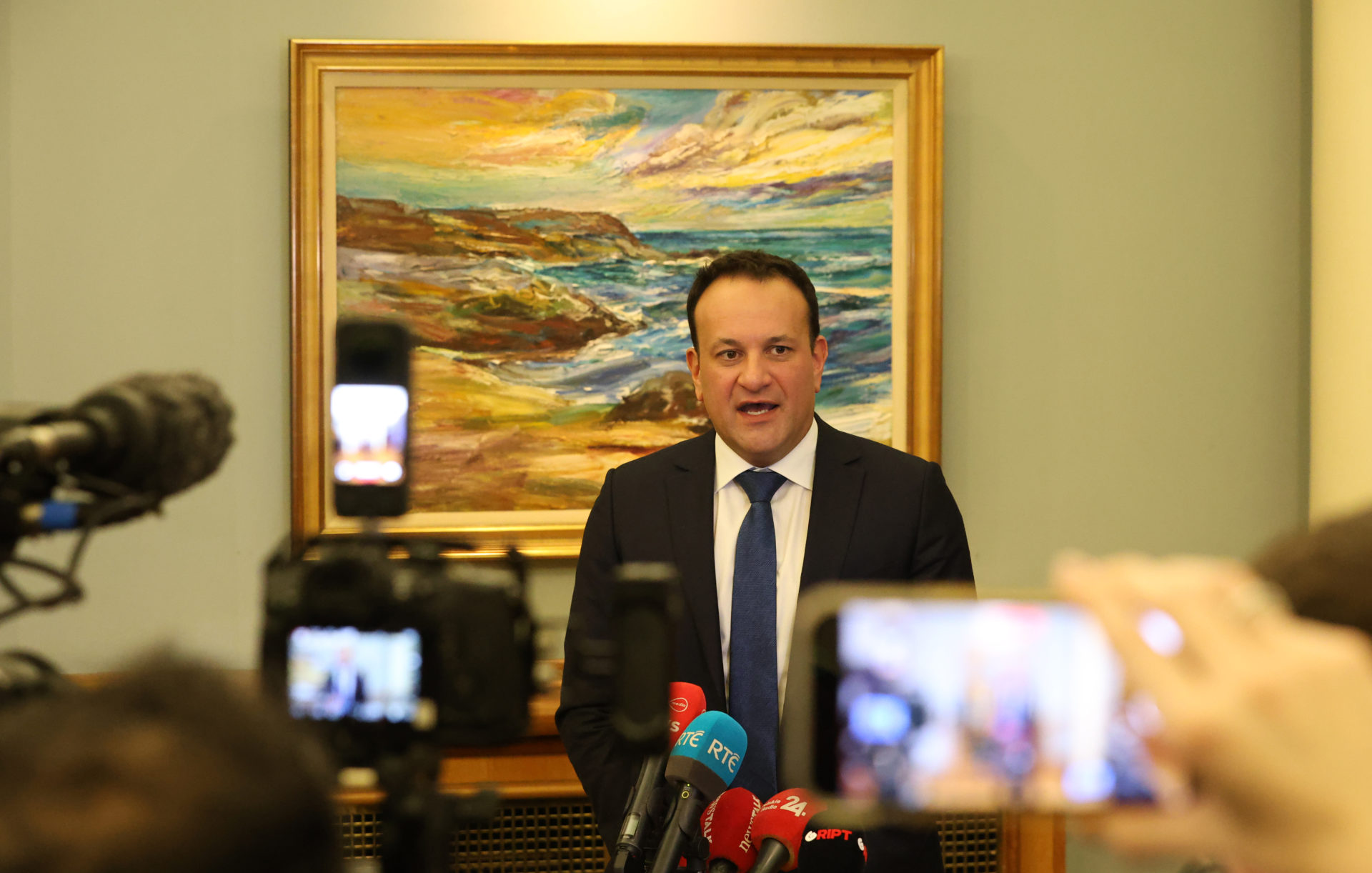While the referendums in Ireland prompted debate about care and the definition of family, international media has focused on the choice to retain the wording about “women in the home”.
In recent years, Ireland has been the centre of discussions about changing values in the 21st century. In 2015, the country was in international news for becoming the first country to legalise same-sex marriage by a referendum.
In 2018, the State was also praised for legalising abortion in a landslide vote, seen as a sign of growing liberal values in the country.
This year, however, Ireland has received global attention for voting against the Family and Care referendums.
In the eyes of many international reports, the rejection of these referendums – particularly the Care referendum – was associated with the country’s conservative past.
Referendum day
On March 8th, media abroad focused on the “gender-related language” in Bunreacht na hÉireann that could potentially be changed.
CNN ran the headline “Ireland votes on gender-related language in constitution”, although an interview with gender studies expert Dr Mary McAuliffe emphasised the debate surrounding care within the home.
Similarly, The New York Times noted the vote was taking place on International Women’s Day, reflective of “the country’s more secular and liberal modern identity”.
The New York Times also noted the original wording on the role of women in care was “written in line with the values of the Roman Catholic Church and ratified in 1937, when religion and social conservatism dominated society”.
 Counting in the Family and Care Referendums at Dublin's RDS, 9-3-24. Image: Leah Farrell/© RollingNews.ie
Counting in the Family and Care Referendums at Dublin's RDS, 9-3-24. Image: Leah Farrell/© RollingNews.ieState-owned France 24 said the referendum was a challenge against Ireland’s religious history, although it went further into detail about the opposition from some caregivers and people with disabilities.
Far more attention was paid to the Care referendum than the Family referendum, which was mainly seen as part of a wider attempt to “modernise” Irish society.
Focus in the Family referendum abroad was on the concerns raised about the definition of “durable relationships” and whether this would include polygamy, as noted by Indian news outlet Wion.
Results day
While in previous years Ireland has received international attention for its modernising referendums, the Care and Family referendums received attention for yielding the biggest rejections in Irish political history.
The New York Times ran with the headline “Ireland Rejects Constitution Changes, Keeping ‘Women in the Home’ Language”, once again noting the Catholic Church’s influence on Ireland.
It wrote that those against the referendums said “the proposed clauses did not go far enough, while others faulted phrasing that they said was too broad”.
 Taoiseach Leo Varadkar speaking to the media at Dublin Castle for the referendum on Family and Care. 9-3-24. Image: Sasko Lazarov/© RollingNews.ie
Taoiseach Leo Varadkar speaking to the media at Dublin Castle for the referendum on Family and Care. 9-3-24. Image: Sasko Lazarov/© RollingNews.ieThe Guardian in the UK first published “Varadkar admits defeat over bid to modernise Ireland’s constitution”, but noted the No vote was not solely based in “conservative backlash”.
The British newspaper also said these referendums was a “a contrast to the seismic 2015 same-sex marriage referendum and 2018 abortion referendum that underscored Ireland’s secular, liberal transformation”.
Al Jazeera noted the failure of both the Family and Care referendums in its headline, but like other media outlets, emphasised the decision not to change the current “old-fashioned language”.
International media also focused on the reactions of Taoiseach Leo Varadkar, often referred to as the “Irish Prime Minister”, with many emphasising the Government’s “defeat”.









